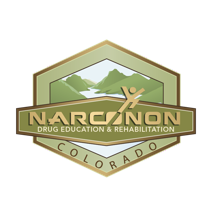Are You Enabling an Addict?

Enabling a loved one’s addiction is one of the most dangerous things a family can do. Although it can feel like helping, enabling allows a person struggling with substance use to continue their behavior without consequence. Giving them money, a place to stay, helping them with bills, ignoring red flags, and not confronting their behavior in order to “keep the peace,” are all methods of enabling, masquerading as helping. Aside from the drugs themselves, enabling is a big killer of addicted individuals. If more families decide to quit their enabling behavior, their loved ones are more likely to quit using drugs or drinking alcohol and accept help at a rehabilitation center.
Money
Addicted individuals struggle with maintaining employment. While using drugs or regularly over-consuming alcohol, keeping a job becomes increasingly difficult. The hangovers may cause a person to constantly call out sick from work or a person gets too high and knows they cannot show up to work because they will get found out by their boss or coworkers. Sometimes an addicted individual will steal from the register, petty cash box, or other employees to fund their habit because they’ve run out of money. Eventually, the person can’t confront their workplace without constant fear of being caught, so they quit their job and tell their family they were fired for reasons outside their control. The story told to mom and dad is an attempt to get money and gain the support of the family since they were “victimized” by their now previous employer.

People who are addicted to drugs or alcohol will commonly rack up debts. They’ve likely borrowed money from friends who are now upset from not being paid back, have unpaid tabs at bars or liquor stores, or have drug dealers who won’t “front” them any more drugs. To get money to pay these debts back and be able to continue to use or drink, they tell their families they need help with bills, rent, or “a drug dealer is going to shoot me if I don’t pay them back.” Whatever the story is, if a family has a known drug user or alcoholic within their ranks, any money given to them is possibly going to fund their addictions. Even if the person does pay their rent with money given to them, for instance, the reason they are unable to pay it in the first place is that their money has gone into either buying drugs or alcohol. The manipulation is knowing the family won’t say no to the request if it’s presented as an emergency that will leave them homeless, jobless, car getting repossessed, etc. This manipulation preys upon a set of parent’s natural instincts to protect their children. Constantly doling out money does nothing to protect them. It allows them to continue their dangerous lifestyle.
Allowing an Addicted Family Member into Your Home
There is a type of enabler known as a “fixer.” This is a family member who thinks they can fix an addicted loved one by giving them a place to stay, giving them a job, or any other countless ways of not holding them accountable for their actions. Once a person is caught in addiction, it is very hard to break the cycle without professional help. Allowing an addicted family member to live in your home only softens their landing after making bad decisions. Doing this prevents them from receiving the consequences of their choices and often stops them from reaching out for professional help.
Many addicted individuals will not accept help without being motivated to do so. While using drugs or drinking excessively, it is nearly impossible for the individual to make logical, rational choices. It’s unfortunate but many addicts are so caught up in their addiction that they must suffer consequences for their actions before they will accept help.
While not assisting with food or shelter is not usually the best option, sometimes it is necessary to deliver a bottom line to an addicted individual that makes it clear that continued substance use will not be tolerated in the family’s home. If the behavior continues, the family can decide to withdraw financial support or ask the substance user to leave the house as a consequence. Any fighting back against the family for setting these boundaries can be a manipulation that preys upon a family’s instinct to help.

In addition, allowing an addicted individual to continue to use drugs in the family’s home invites chaos, fights, arguments, and unnecessary drama to be a part of daily life. This can disrupt the normal flow of a household and turn it into a toxic environment for everyone. In this situation, no one wins unless the addicted person gets help in a treatment center.
Ignoring Red Flags
When a person is addicted to drugs or alcohol, before they fully admit to it, the family already knows something is going on but has failed to confront the issue. By the time the person who’s addicted admits to the problem, things have already gotten severe enough that they are willing to talk about it. The common reason the problem has gone on for as long as it has is because the family ignored red flags and didn’t bring up the issue.
Each time mom opened her purse and saw $40 missing and didn’t say anything added to the problem. Every time a loved one showed up two hours late (being out of character) to a family event and no one said anything added to the problem. With each job lost, with every bill they needed help with, with every odd circumstance they needed to get bailed out of, every time the family stepped in and helped and didn’t try to find out what was really going on, it all added to the problem. Families cannot ignore the red flags that are blatantly pointing to the existence of an addicted family member. Ignoring them only allows a furthering of their addiction. A family cannot ignore a problem and hope it goes away. Denial can run deep because parents can feel as though they failed if they admit their loved one is addicted.
If you or another family member is responsible for any of the above enabling behaviors, it is likely one of the causes an addicted loved one is refusing to seek help. Addiction is a terrifying thing and every family should know, the more their addicted loved one is enabled, the more likely they are to succumb to their addictions.


